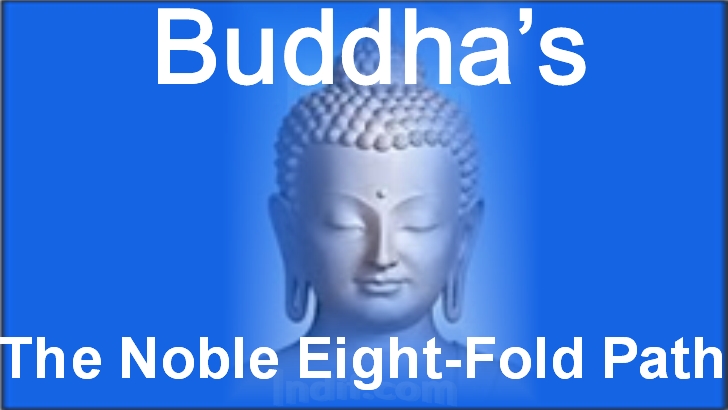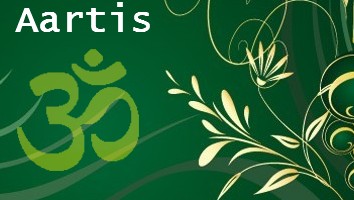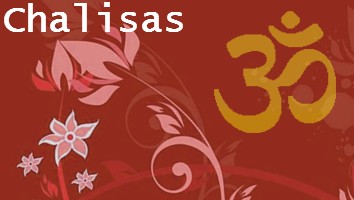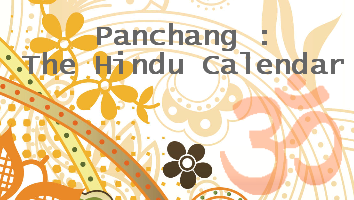![]()
Source : Complied from various published articles on Lord Buddha
Lord Buddha was the founder of the Buddhist religion and is said to be the ninth avatar of Vishnu. The Buddha was born as Siddhartha Gautama in 563 BC. He was an actual historical figure, a prince of the Shakalyas, the people of a small state bordering modern India and Nepal. He lived in a time of prosperity and social up heal. At the age of sixteen, Siddhratha married a beautiful woman and the had a son. The turning point in his life came when Siddhartha was twenty-nine and he ventured outside the palace grounds. He was caught by the sufferings of the world (old age, sickness and death), left his wife, son and riches to become a wandering ascetic in the search for enlightenment. He wandered to many places and ultimately at the age of thirty-five he arrived at Bodh Gaya, where he sat beneath a tree. He swore that he would not rise until he had found enlightenment. After forty-nine days of solitary meditation he attained nirvana, the state of permanence. He thus became the Buddha "One who is fully Awake."
The essence of the Buddha's teaching can be summed up in two principles: the Four Noble Truths and the Noble Eightfold Path. Within the Fourth Noble Truth is found the guide to the end of suffering: the Noble Eightfold Path.
The Four Noble Truths:
The Four Noble Truths are a very important aspect of the teaching of the Buddha. In his very first sermons, delivered in Sarnath, called the "Setting of theWheel of Dharma in Motion", was on the Four Noble Truths and the Eightfold Path. The Four noble truths are -
- Life is Suffering;
- Desire (or more tellingly, thirst) is the cause of Suffering;
- The cessation of desire is the cessation of Suffering; and
- The cessation of Suffering is achieved through the Eightfold path.
The Noble EightFold Path:
The noble eightfold path is at the heart of the daily Buddhist practice. It is not a ritual that can be performed by an elite priesthood, but a way of life and practical guide available to all. The Eightfold path is based on eight principles that are inter-related. The eight parts of the path to liberation are grouped into three essential elements of Buddhist practice. They are :-
| Right Understanding |
Wisdom |
| Right Thoughts | |
| Right Speech |
Morality |
| Right Actions | |
| Right Livelihood | |
| Right Effort |
Concentration |
| Right Mindfulness | |
| Right Concentration |
Once this path was followed, desire would cease, and so would suffering. But since suffering is the very nature of life, its cessation would mean the vainishing of life and the cycle. To realize these Truths is to realize and penetrate into the true nature of existence, including the full knowledge of oneself. This is Nirvana - an "Extinction" of that cycle. The reward of following the eightfold path is Nirvana, which Buddha promised was available to humans in the last of his four noble truths.
Just as treasures are uncovered from the earth, so virtue appears from good deeds, and wisdom appears from a pure and peaceful mind. To walk safely through the maze of human life, one needs the light of wisdom and the guidance of virtue.
- BuddhaThree things can not hide for long: the Moon, the Sun and the Truth.
- BuddhaIf you light a lamp for somebody, it will also brighten your path.
- BuddhaWe are shaped by our thoughts; we become what we think. When the mind is pure, joy follows like a shadow that never leaves.
- BuddhaThe On life's journey Faith is nourishment, Virtuous deeds are a shelter, Wisdom is the light by day and Right mindfulness is the protection by night. If a man lives a pure life nothing can destroy him; If he has conquered greed nothing can limit his freedom. "
- Buddha


 Collection of Hindu Vrat and Upavas Kathas
Collection of Hindu Vrat and Upavas Kathas





